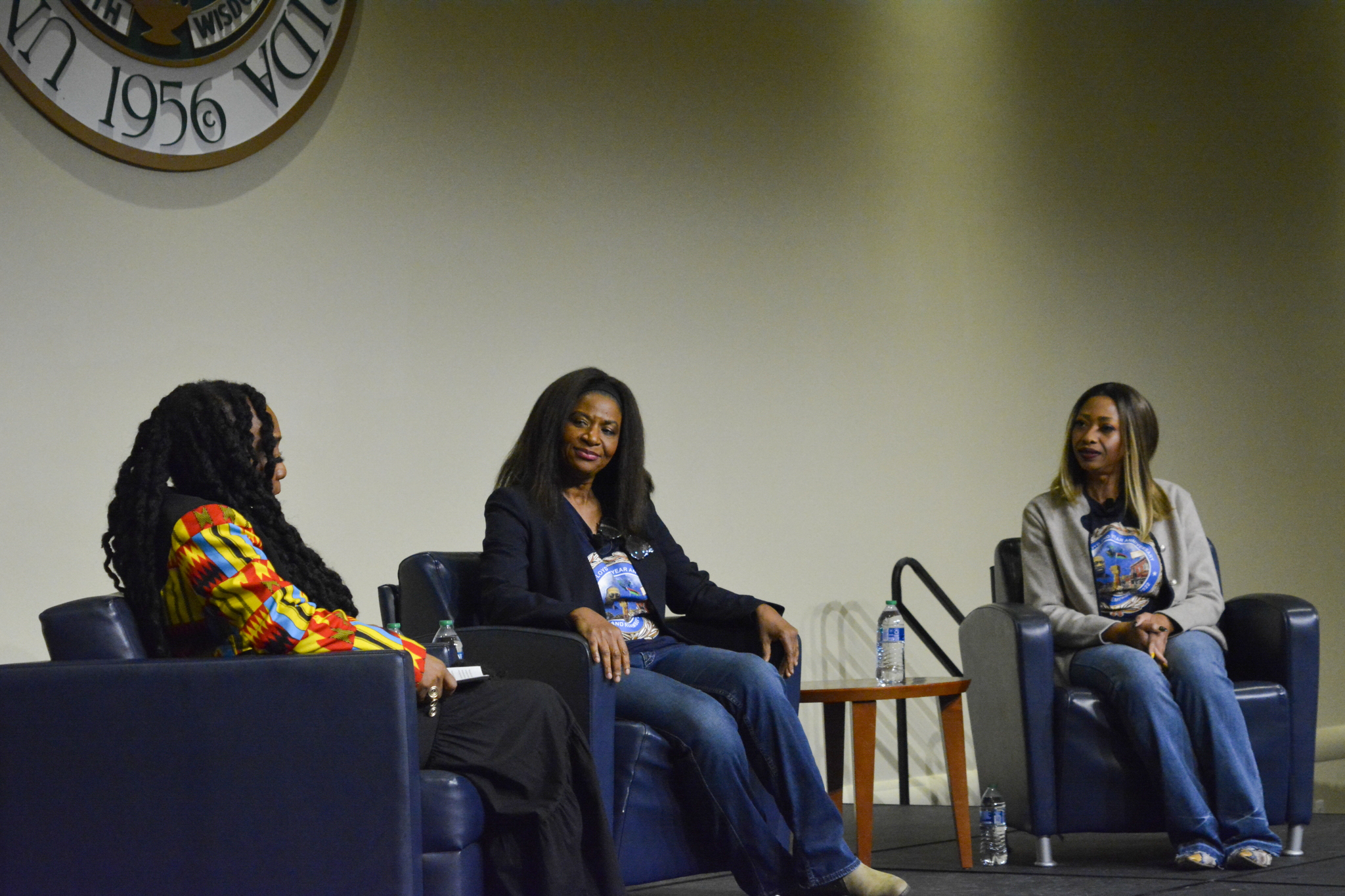Relatives of George Floyd honor his memory, call for change at ULS

When George Perry Floyd’s cousin Paris Stevens returned to Minneapolis several months after Floyd’s death, she witnessed how the community had continued to unite at 38th and Chicago, the location of his memorial.
“When I arrived there, they still had Perry’s silhouette where he took his last breath, so I took a moment to meditate and see all the flowers,” Stevens said.
The first University Lecture Series (ULS) of the semester was held on Wednesday in the Marshall Student Center Ballroom with an estimated 65 students in attendance.
The event began 15 minutes after its scheduled start time of 8 p.m., but it still ended on time at 9 p.m. The conversation with Stevens and Floyd’s aunt Angela Harrelson was moderated by English professor Geveryl Robinson.
Floyd, an African American man, was murdered by a police officer in Minneapolis, Minnesota during an arrest made in May 2020. The officer knelt on Floyd’s neck and back for nine minutes and 29 seconds, which caused a lack of oxygen. His death sparked nationwide protests against police brutality and discrimination in minority communities.
The overwhelming response to Floyd’s death is something Stevens said made her family feel supported through their time of grief.
“We have had so much support from so many people all over the world, not just our family,” Stevens said. “Just complete strangers that will come up to start conversations, and they will tell you their experiences [and] about their lives.”
Harrelson said oppression and police brutality have always been major issues, but many people came together in shock after watching Floyd’s murder.
“It was a sleeping giant for brown and Black America, but it was a great awakening for white America. That’s how I see it,” Harrelson said.
As the Black Lives Matter movement gained national and international media attention, Harrelson said the issue of police brutality became a more prominent topic of conversation among people of all races. Even with the overwhelming support, she said Minneapolis community members had to fight to keep Floyd’s memory and memorial alive.
Protestors and community members used trash cans, sticks or their own cars to create a barrier from white supremacists who tried to disrupt protests and destroy and burn the memorial, according to Harrelson.
Harrelson said that while people sought to put Floyd in a box as a drug addict and a felon, they failed to recognize the faithful man he was who studied his Bible every day.
Stevens remembered moments with her cousin where they shared their love for basketball, with Floyd always talking about wanting to play in the NBA. Harrelson mentioned her fondest memory of her nephew was his devotion to religion, and how he treated his mother after serving time in jail.
“They went to church together, and it was so refreshing to hear,” Harrelson said. “He was willing to go to church and take his mom in a wheelchair to church. That was that. That was the highlight.”
Harrelson associated the media’s role in portraying harmful stereotypes to the desensitization of violence against Black people.
“Change is not going to come, change is already here,” Harrelson said. “With people working in media, they need to decide if they want to be part of that change or continue to put stereotypes on what is Black and white. And it’s going to make people uncomfortable.”
Both Stevens and Harrelson associated the power of change with younger generations. When an audience member asked how young people can be better activists, Stevens said that perseverance and self-belief are the most important components.
“Use your voice,” Stevens said. “But you have to understand that not everyone is going to walk with you, not everyone is going to believe in your message. People are not for you, they are not for us, and you have to be okay with that.”








